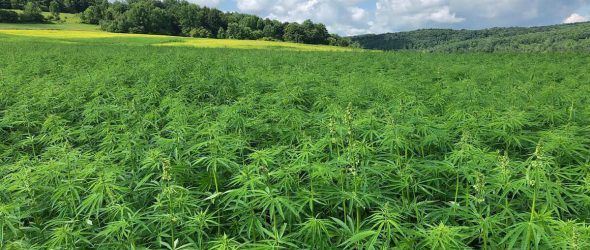There has been so much talk in recent years about the growth and use of cannabis plants. With the recent legalisation of its counterpart—Marijuana—in some countries and states, hemp has increasingly become popular in various industries. In fact, it’s deemed to be one of the most profitable crops today that is predicted to be a billion-dollar industry in the years to come. With its extremely low level of tetrahydrocannabinol (THC) and high Cannabidiol (CBD) content, there are good reasons to cultivate hemp and produce various products such as CBD seeds, fibre, and oil.
In this article, we’ll delve deeper into what hemp is, what to consider when growing this plant, and its uses and benefits:
Hemp in a nutshell
Let’s start by mentioning the cannabis Sativa plant species. Common types of this species are hemp and marijuana, which essentially makes them both cousins. Both plants are known for carrying a unique chemical composition that isn’t present in other types of plants. However, the difference lies in their THC content (known for its psychoactive property) and CBD content (popular for its various health benefits). While marijuana has high THC, hemp is notable for its high CBD content with low THC, which is why it is a highly coveted plant species.
Hemp uses and benefits
Let’s explore the various uses and benefits of the cannabis Sativa plant species. For the most part, hemp production covers the following industries:
- Animal care and paper products: around 50 to 60 per cent
- Automotive industry: almost 25 per cent
- Construction materials: 20 per cent
- Stock (mattresses, agriculture, and shoe soles): 5 per cent
Hemp‘s growth and usage are gradually expanding in the cosmetic and pharmaceutical industries. Various researches are now being carried out to understand the plant’s potential benefits, particularly its CBD content. For your reference, CBD has been tested and proven to treat the following:
- Chronic pain
- Anti-inflammatory issues
- Epilepsy
- Depression
- Anxiety
- Multiple sclerosis
- Neurodegenerative disorders
- Crohn’s, Colitis, and IBD
- Cancer
Hemp growth: what factors to consider
In the past, the plant’s farming was deemed illegal in most countries. With its wide acceptance in today’s society, it’s now easy to procure seeds and start growing these plants. When cultivating them, be sure to take note of the following factors:
- Soil: It’s best to have soil testing first for your hemp farming. While these plants grow in almost all soil types, they do better in certain conditions. Opt for soil with 6 to 7.5 pH level, fertile condition, as well as minerals and organic matter.
- Sun: It’s crucial to ensure direct sunlight for your hemp crops to have fuller and uniform growth. At least six hours of sun exposure helps your plants grow, so planting in shaded areas will not be beneficial!
- Water: It’s vital to have 20 to 30 inches of rainfall per growth cycle for your hemp farming. If your area cannot suffice this amount of rainfall, then you have to resort to irrigation options.
Conclusion
With all the uses and benefits of hemp, you have all the right reasons to grow and cultivate this crop. At the same time, be sure to consider the factors mentioned above for its growth and cultivation, and procure proper licenses and permits. Now is the best time to start investing in hemp farming and producing hemp products such as CBD, seeds, or fibre.
We offer high-quality CBD seeds in the UK for your cannabis plant growth. If you’re looking for RQS seeds or hemp seeds, get in touch with us today to see how we can help!


